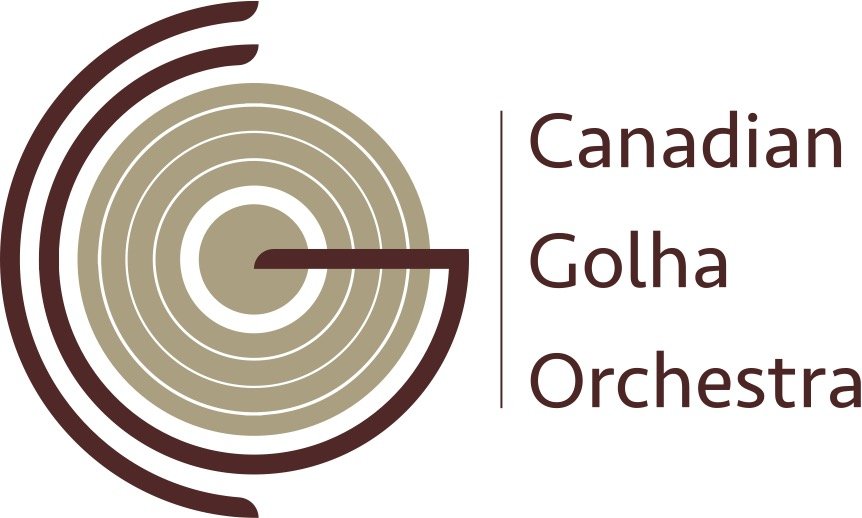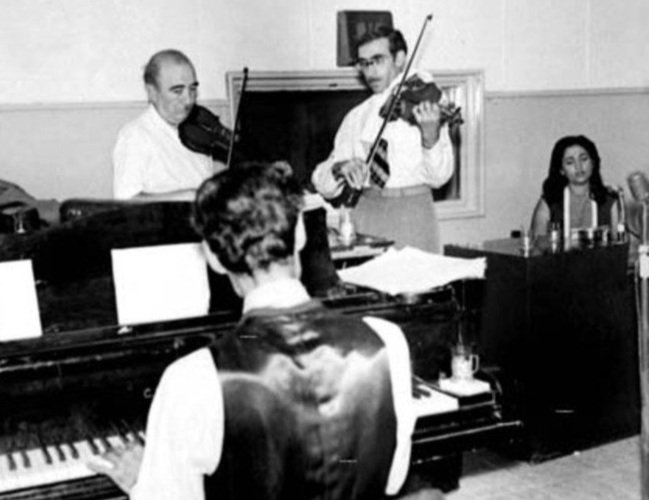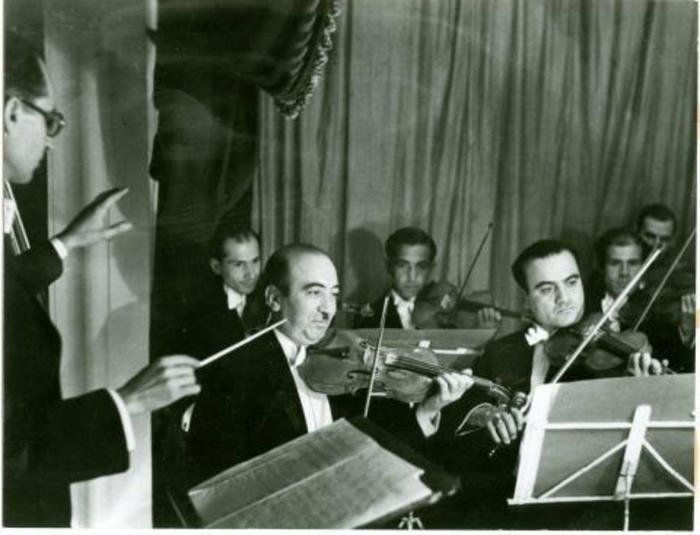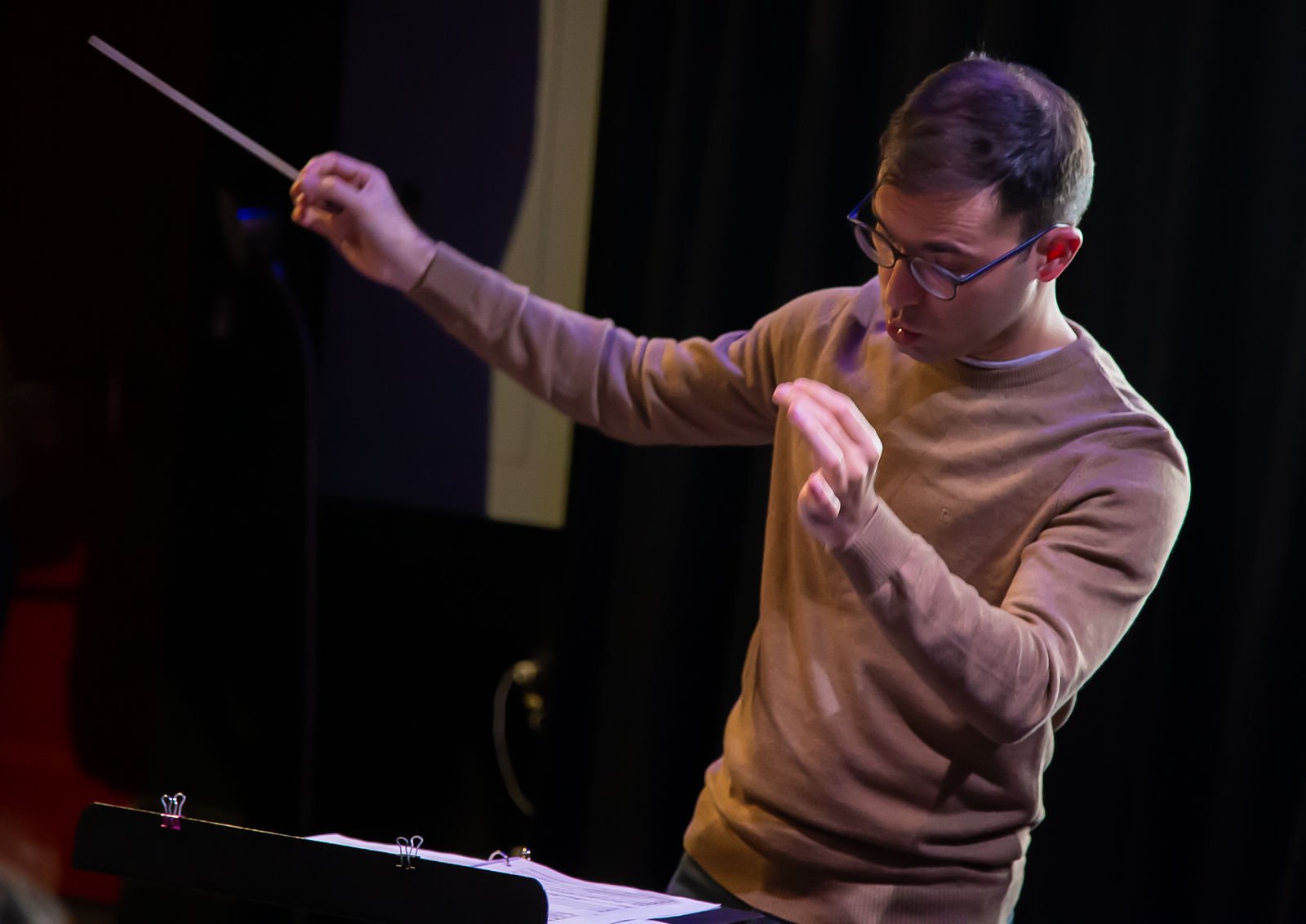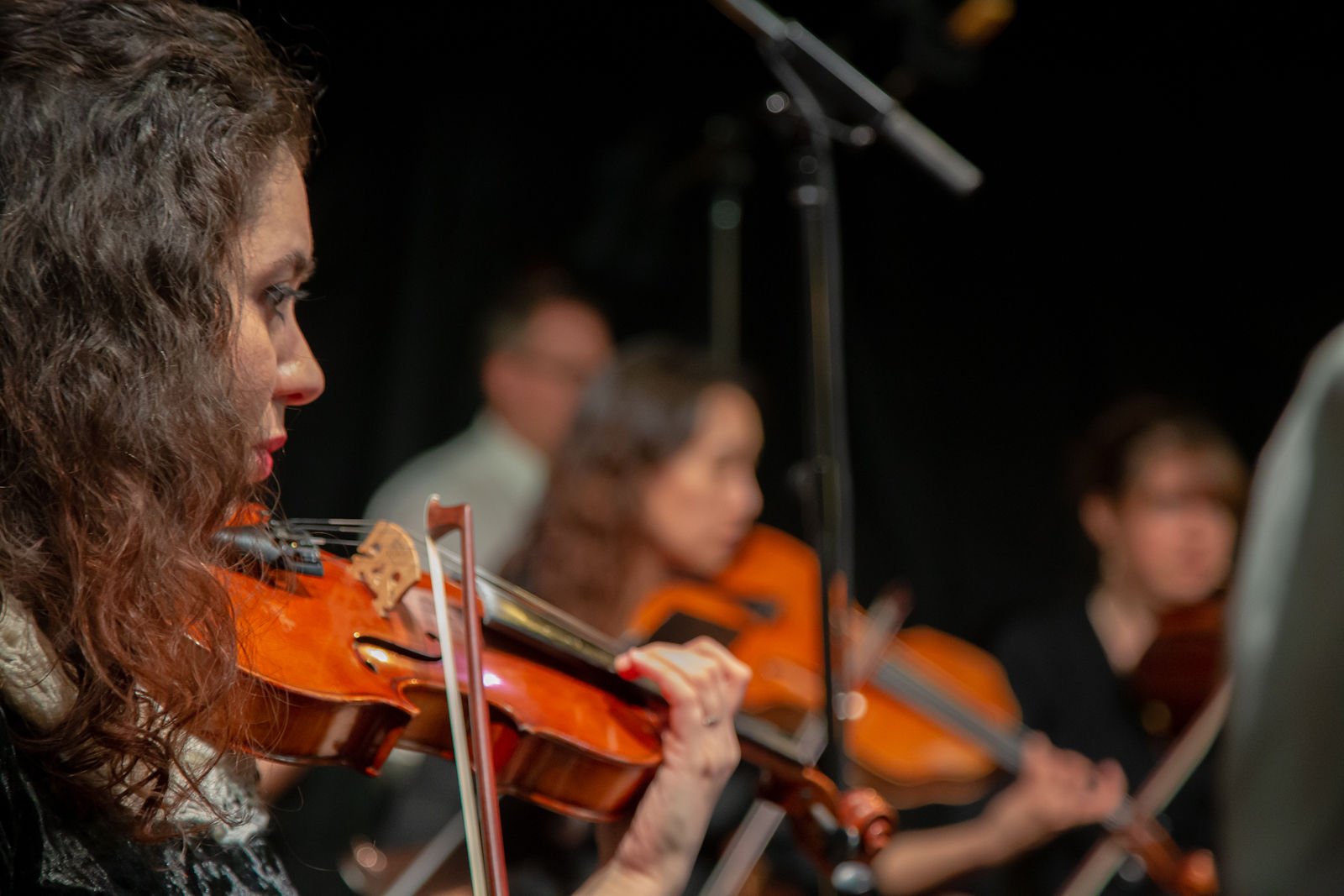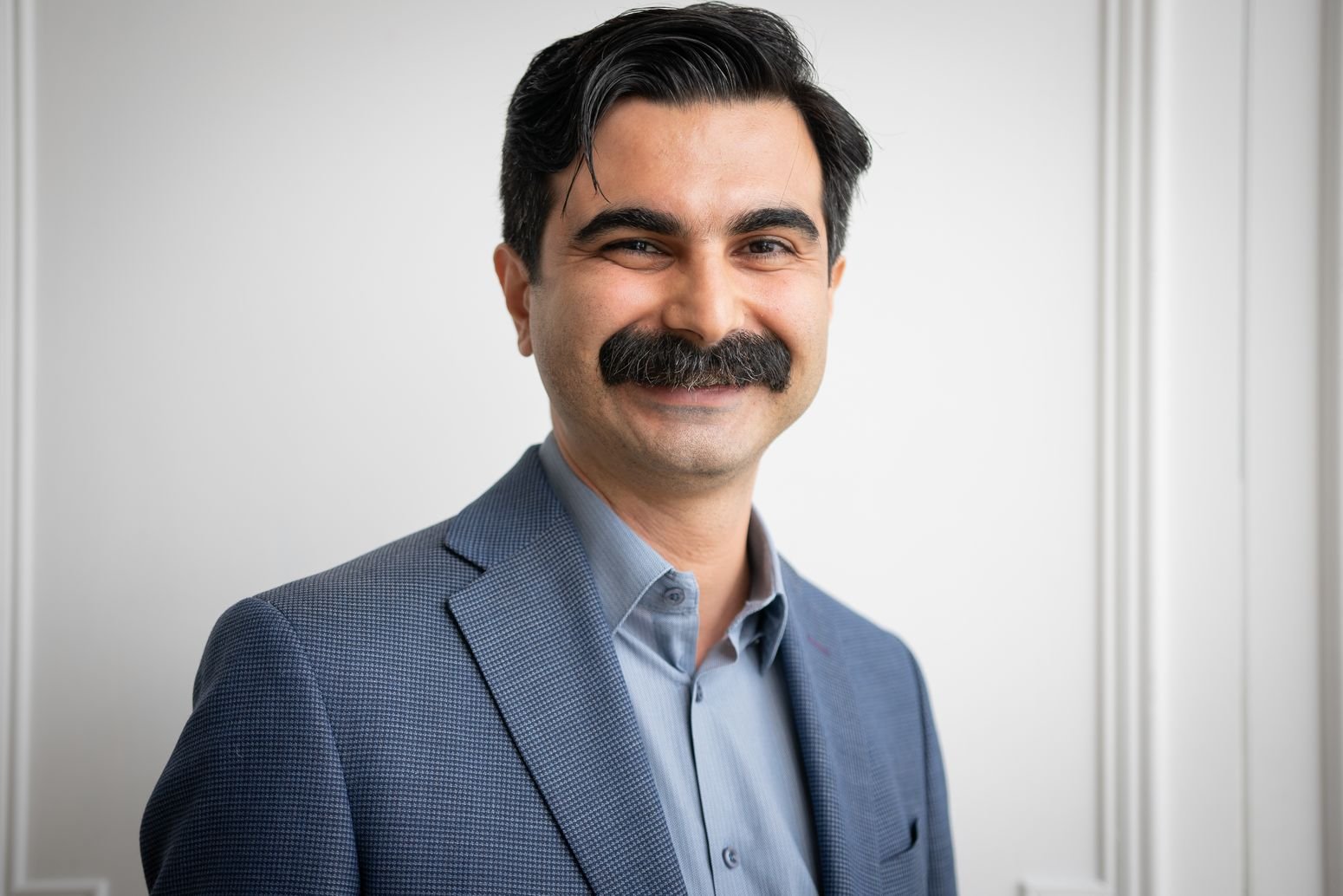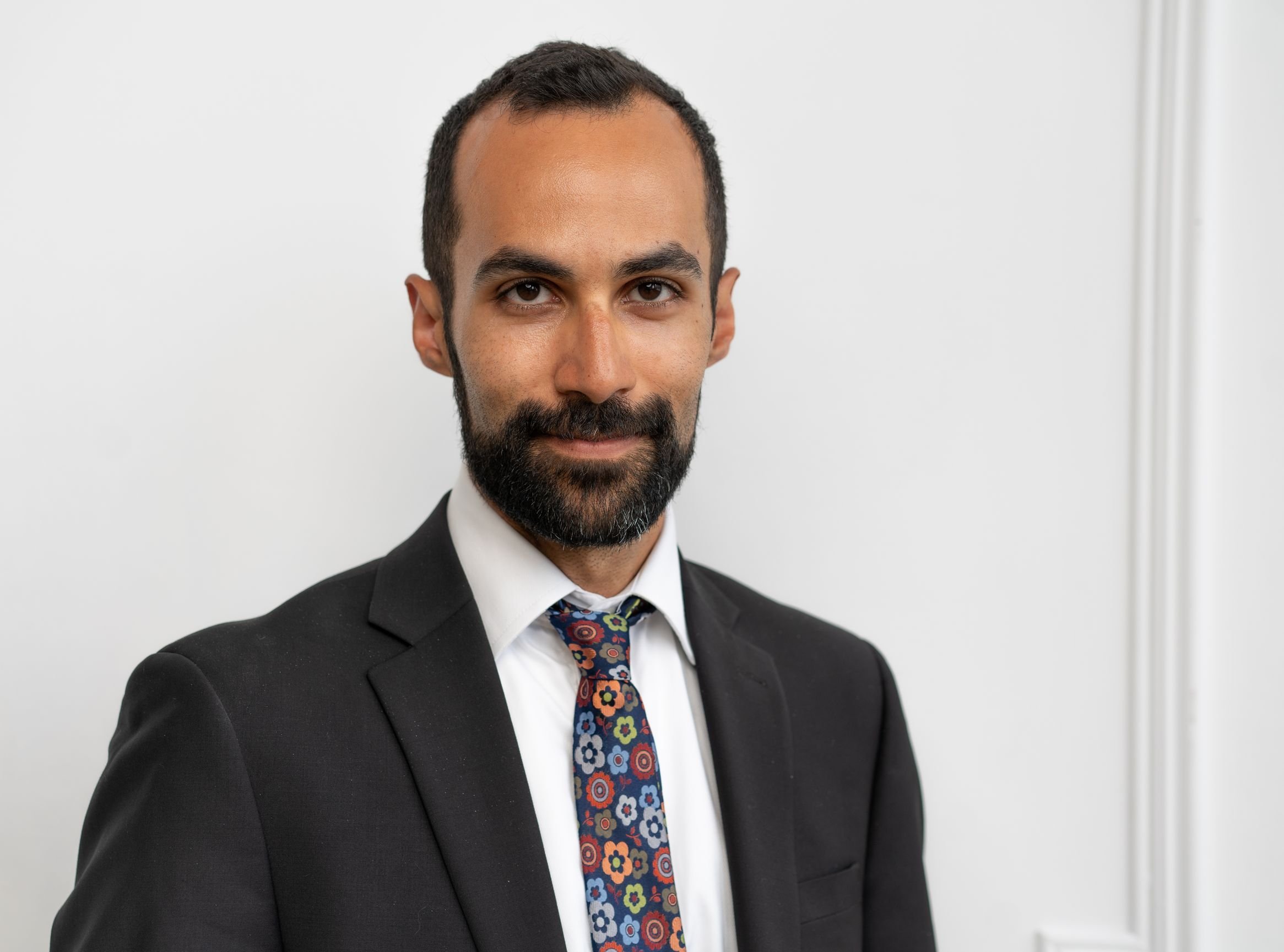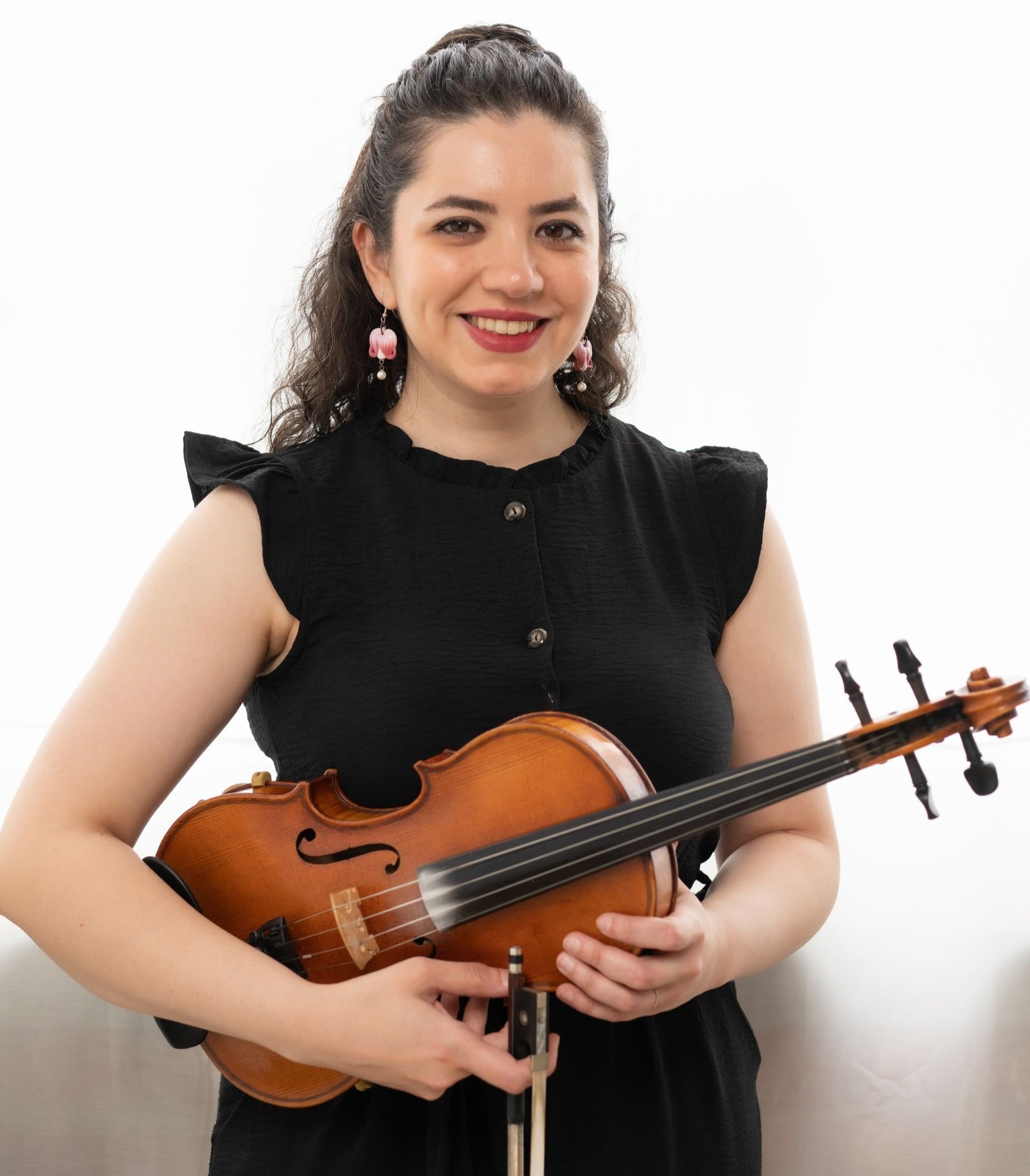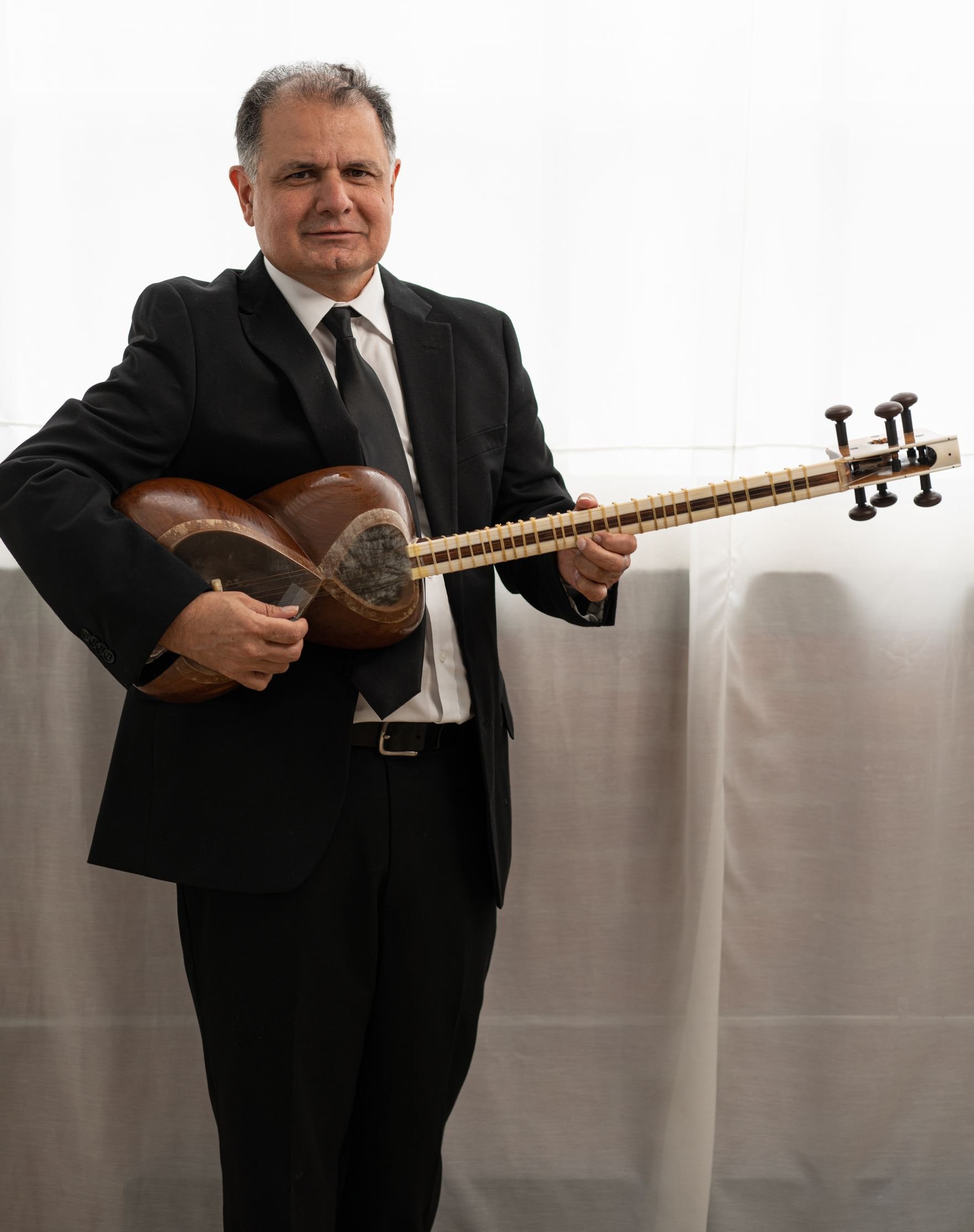History of Golha
For several decades during the mid-twentieth century, Radio Tehran’s Golha Program brought a new style of Iranian music to a wide range of listeners across Iran. Often employing its now-iconic Golha Radio Orchestra, composers such as Rouhollah Khaleghi developed a new musical language that masterfully integrated the modal and melodic aspects of Iranian Dastgah music with Western classical music’s harmony and orchestration, and seamlessly employed traditional Iranian instruments such as tar and tonbak alongside orchestral strings and woodwinds. However, due to various sociopolitical events, chief among them the 1979 revolution, the music of the Golha orchestra fell out of practice. In recent years, interest in the music of Golha has grown inside and outside of Iran. Several young musicians have started to perform Iranian music on the violin in the style of masters heard on the radio. However, a successful resurrection of the Golha orchestra has not yet taken place.
Canadian Golha Orchestra
Canadian Golha Orchestra is uniquely positioned to revive this artistic practice and bring this rich music back to the stage in Canada for the first time in decades. Inspired by this now-marginalized style of music, Canadian Golha Orchestra (CGO) aims to perform and present Iranian orchestral music, particularly the rarely-performed Golha masterpieces, as well as creating and performing new music in this style by contemporary composers. It seeks to imagine what Golha Orchestra would have sounded like today if it had continued its life. With this motivation, the CGO endeavors to link the past, the present, and the future, making the rich Iranian musical history relevant to today’s musical and cultural reality in Canada with all its possibilities and challenges.
Artistic Approach
Canadian Golha Orchestra works with Iranian and Canadian musicians trained in their respective fields with a shared passion for learning and expanding their artistic interests. Kousha Nakhaei, the Artistic Director of CGO, has worked as an active musician and educator for over two decades in both circles of Iranian traditional music and Western classical music. He, therefore, has a unique perspective in communicating ideas, concepts, details and approaches of Iranian traditional music to musicians of Western classical training, while also experienced and competent at working with traditional Iranian musicians.
Meet CGO’s artistic and executive directors
Artistic Director
Kousha Nakhaei
Kousha Nakhaei is a music director, violinist, kamanche player, educator, and arranger. He leads Sarv Music Academy, a music education center he co-founded in 2013, serving the Iranian Canadian community by organizing and curating a multifaceted music education program as well as concerts, workshops, and community events. He serves as the artistic director for Sarv Strings and Sarv Choir, and regularly arranges music for these groups. As an instrumentalist, he has performed with artists such as Dariuosh Eghbali, Sepideh Raissadat, Ali Rostamian, Naser Masoudi, and Loreena McKennitt. He has toured in Canada and US with Sarv Ensemble and Canadian Arabic Orchestra. Kousha has served as guest lecturer of Iranian music at University of Toronto, World Fiddle Day, Axis Music, and designed and led a curriculum “Introduction to Iranian Music” for Earl Haig Secondary School’s Claude Watson arts program. He holds a Bachelor of Fine Arts in Music from York University, Toronto.
Executive Director
Hadi Milanloo
Hadi Milanloo is an Ethnomusicologist (PhD, University of Toronto). His doctoral work explores the music and lives of female instrumentalists who perform Iranian classical music in Tehran to examine the intersections of music, gender, and resistance/resilience in Iran. He works towards an ethnomusicological approach that accounts for both aesthetic contributions and social activism of Iranian female musicians. Before joining the University of Toronto, Hadi completed his MA studies at Memorial University, where his Major Research Project focused on the musical life stories of eight Iranian émigré women in St. John’s, Newfoundland. Additionally, he has earned his first MA in Art Studies at the University of Tehran. Hadi is also a musician (Bachelor of Music, University of Tehran) and has studied Setar and the radif of Iranian Classical Music with Ostad Dariush Talai and Hamid Sokuti, among others.
Meet our artistic and executive team members
Nil Basdurak
Project Manager
Nil Basdurak is a Ph.D. candidate in Ethnomusicology at the Faculty of Music at the University of Toronto. Her interdisciplinary doctoral research interests revolve around sound studies, urban public space, the acoustemology of neoliberal Islam, and violence against women, children, ethnic minorities, and refugees in contemporary Turkey. In 2019, her paper about refugee children’s street work as buskers received an honourable mention for the Charles Seeger Prize, which recognizes the most distinguished student paper presented at the SEM’s annual meeting. In 2021, her paper about the acoustemology of violence against women was awarded the Wong Tolbert Student Paper Prize and an honourable mention for the SEM’s Religion, Music, and Sound Section Student Paper Prize. Nil is currently a research assistant for the Kensington Market Soundscape Study—a community-engaged research and knowledge mobilization project focusing on sound, music, and noise in Toronto’s Kensington Market neighbourhood. She is also a graduate fellow at the School of Cities at the University of Toronto. Besides her academic work and interests, Nil serves as a board member of the Golha Initiative for Music and Culture.
Orchestral Advisor
Bijan Sepanji
Born in Tehran, Bijan Sepanji is a Canadian Iranian performer and educator who is based in Toronto, Canada. As a member of the Ton Beau String Quartet, Bijan regularly performs new compositions by Canadian composers as well as well-known classical works by 18th, 19th and 20th century composers. So far, he has performed concerts in Ontario and Alberta, as well as in China, Turkey, Iran, Italy and the USA. In the past two seasons, Bijan performed a number of concerts and gave masterclasses with The Ton Beau at the University of Lethbridge in Alberta, Vanderbilt University in Nashville, Tennessee as well as in Chicago, Illinoise. In addition, Bijan also performed a violin recital and offered workshops in his hometown, at the University of Tehran as part of a composition competition for the students of the university. Having trained at Indiana and McGill universities, Bijan’s orchestral experiences include performances with Indianapolis and Kitchener-Waterloo symphonies, as well as with Sinfonia Toronto, Espirit Orchestra (Toronto), London Symphonia, Hamilton Philharmonic, and the Toronto Concert Orchestra.
Iranian Music Advisor
Behnoush Behnamnia
Violinist and Performance Advisor Behnoosh is an Iranian style violinist and kamanche player, with extensive performance and teaching experience. She has studied Iranian style violin from masters such as Asadollah Malek and Siavash Zendegani, and kamanche with Mohammadreza Lotfi, Ardeshir Kamkar, Saeed Farajpouri, and Darvishreza Monazzami. She holds a Master’s degree in Iranian Music Performance from Tehran University. Behnoosh has performed with some of Iran’s celebrated groups, such as Sheyda Ensembles and Simorq Ensemble and has performed as a soloist in Iran and Europe and has appeared on many recordings. She finds her inspiration in the now-marginalized violin style and aesthetic of the Golha era and is considered as one of the young violinists reviving this genre. She has taught music at the Faculty of Music at University of Kurdistan and is currently studying Music Technology and Digital Media at the Faculty of Music at University of Toronto.
Iranian Music Advisor
Shahin Fayaz
Shahin Fayaz is a tar and setar player, music educator, and co-director of Sarv Music Academy. He started his music studies with Behrooz Hemmati and Reza Vohdani at Tehran Conservatory of Music and Tehran Music University. As well, he continued his studies with masters of Iranian music including Hossein Alizadeh, Mas'oud Sha'ari, Abdolnaqi Afsharnia. He has recorded and performed with many ensembles such as Sarv Ensemble, Aftab, Bahar, and Shiraz Ensembles. Shahin teaches tar and setar and directs Sarv Setar Ensemble. He has taught music for nearly three decades in Iran and Canada and has an engaging, encouraging, and flexible teaching style to fit the needs of students of different musical backgrounds and ages. His music education style reflects his constant interaction with other innovative teachers and artists within Iran and abroad such as Hossein Alizadeh and Fariborz Azizi.

